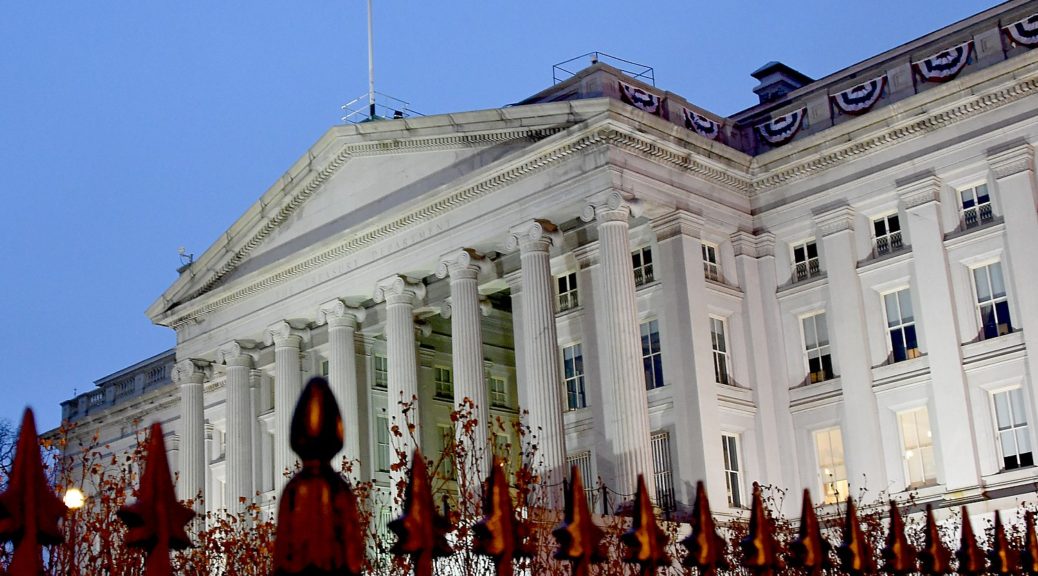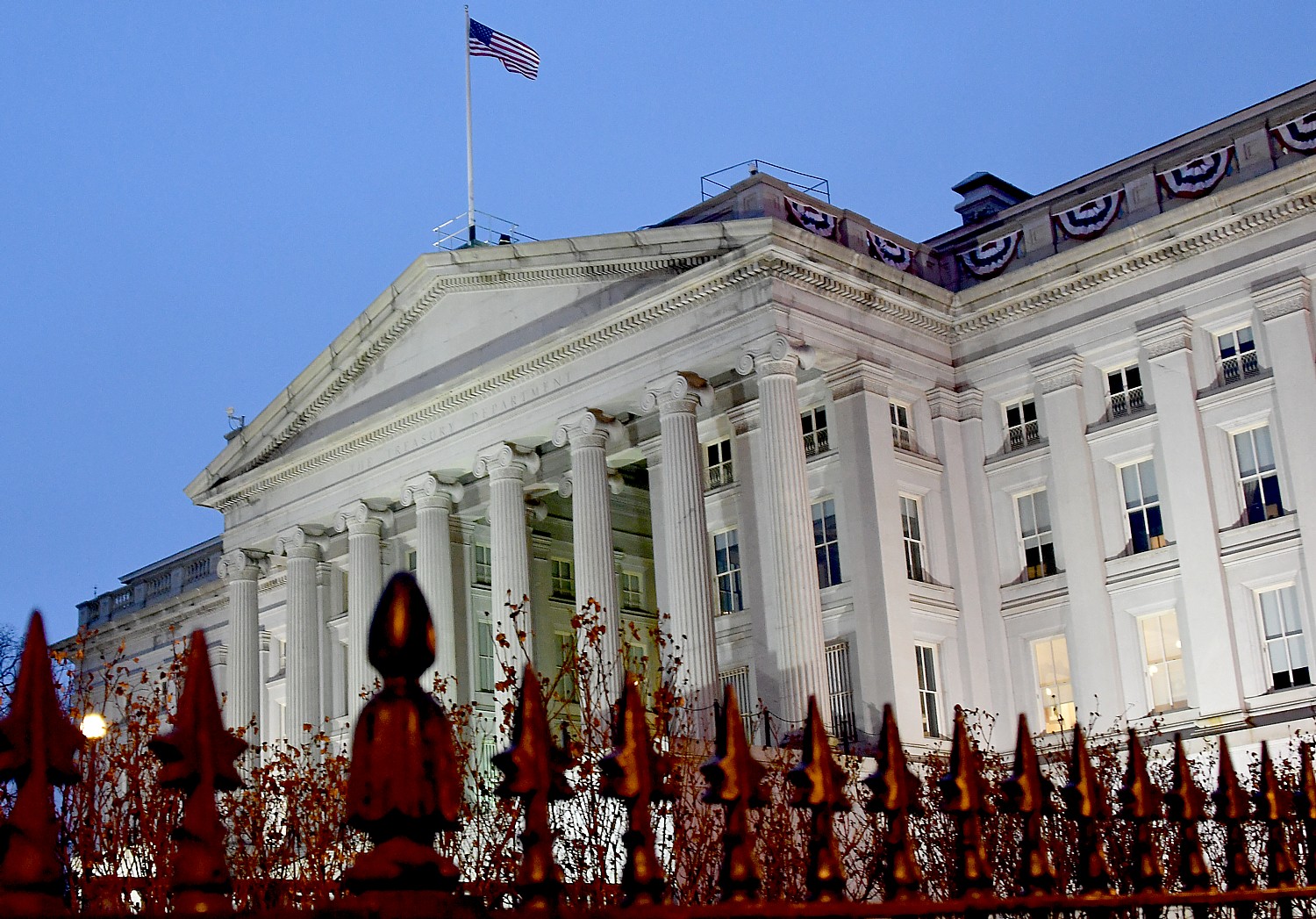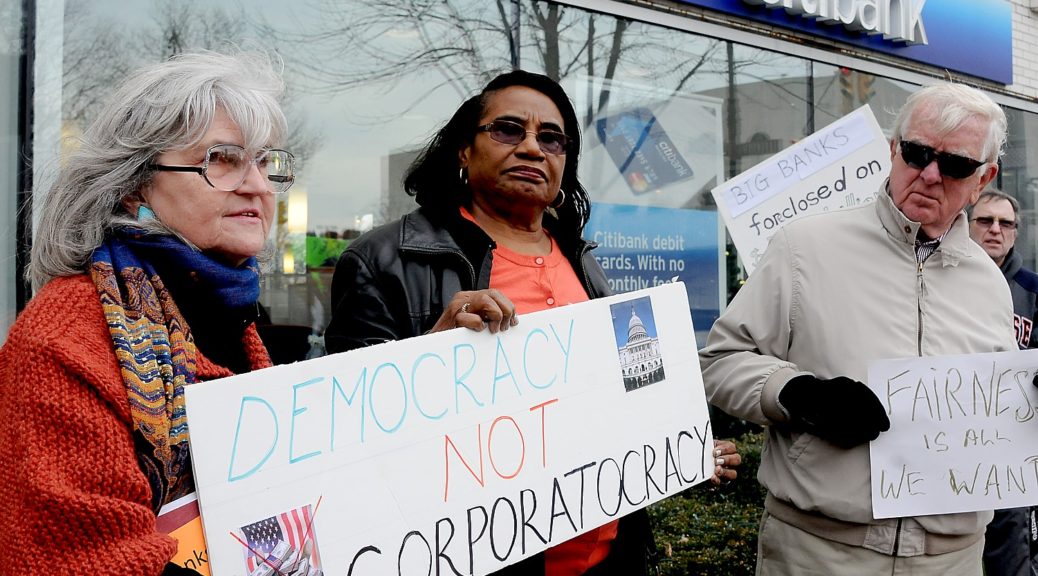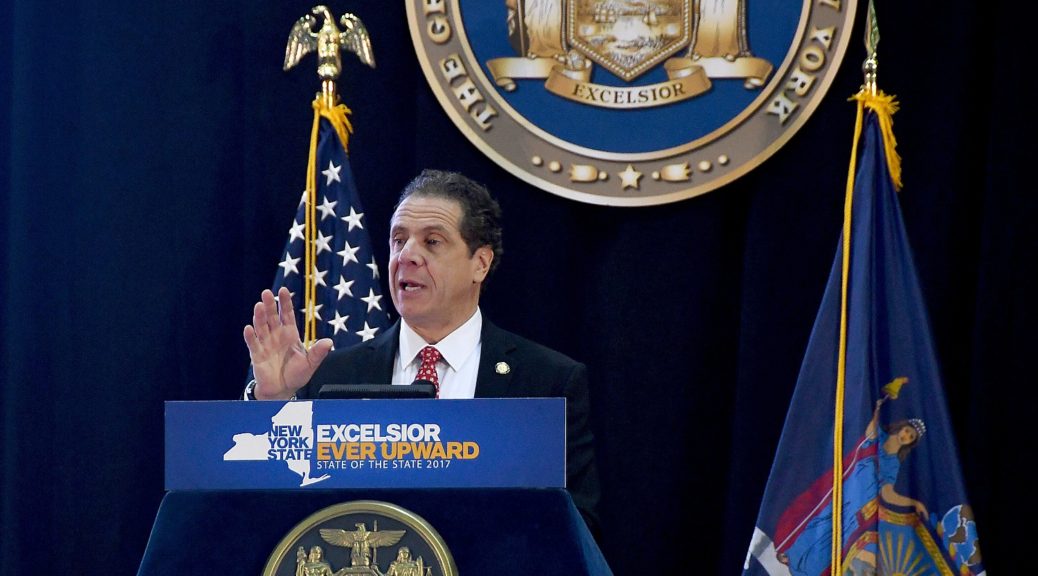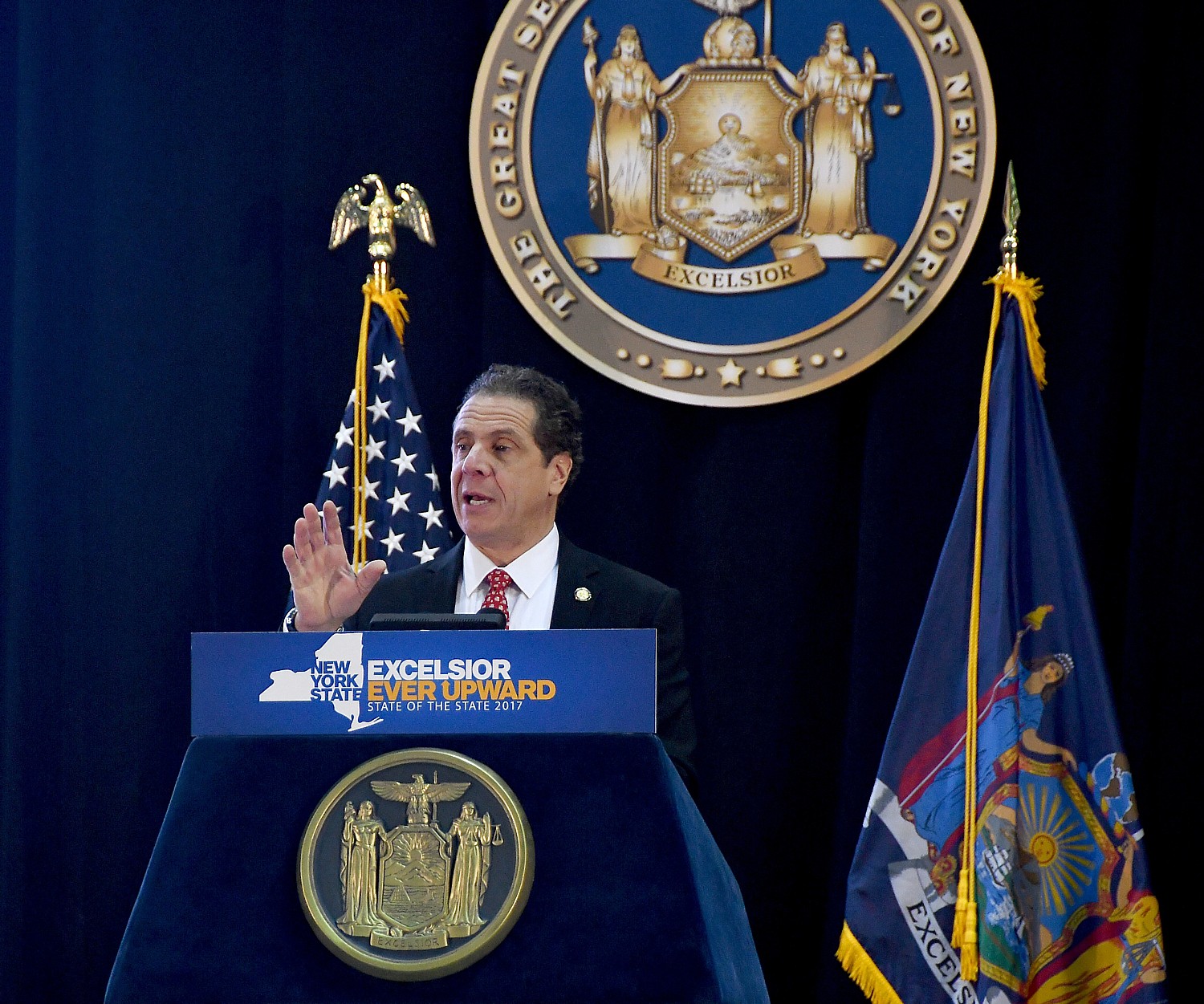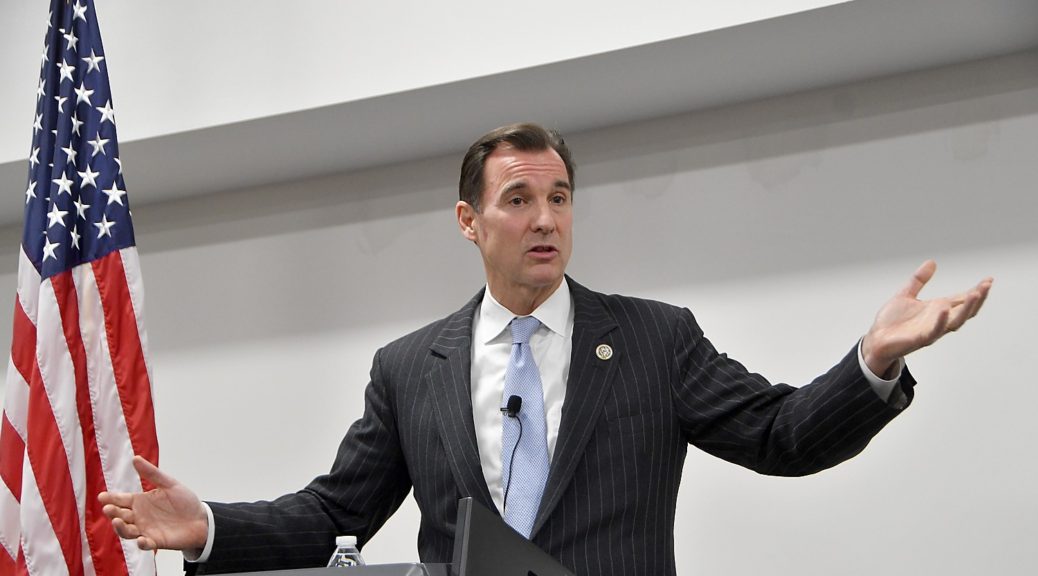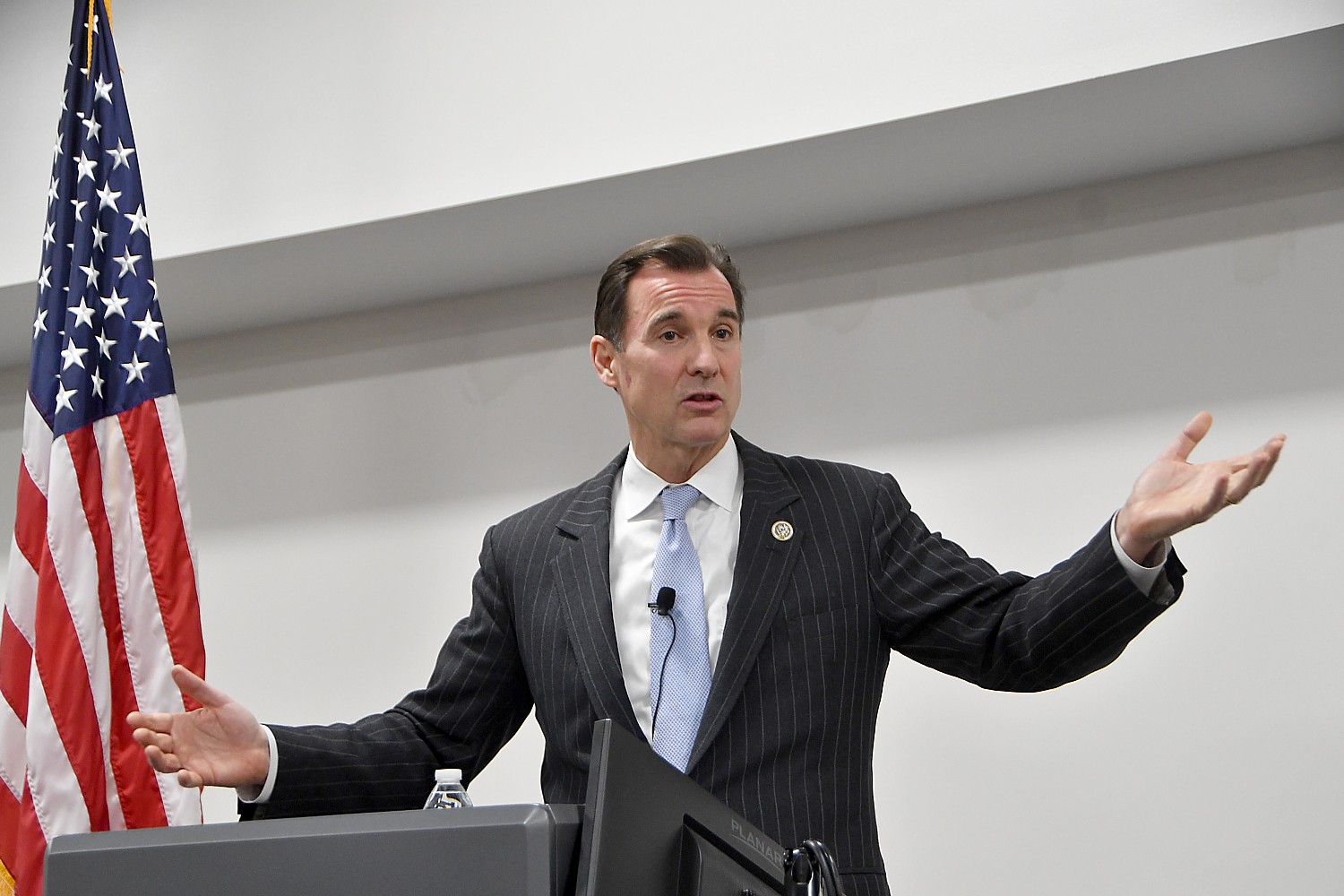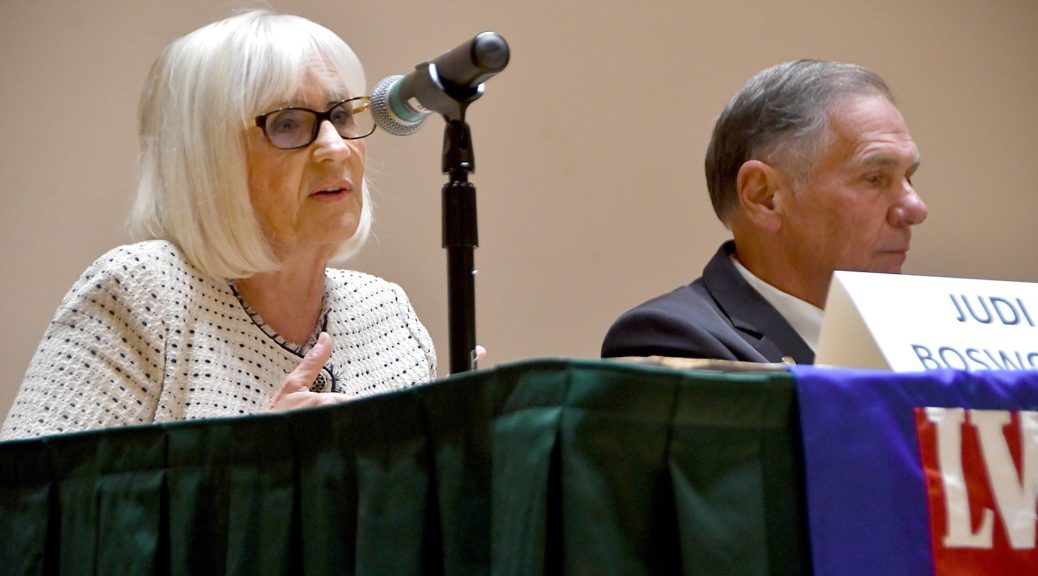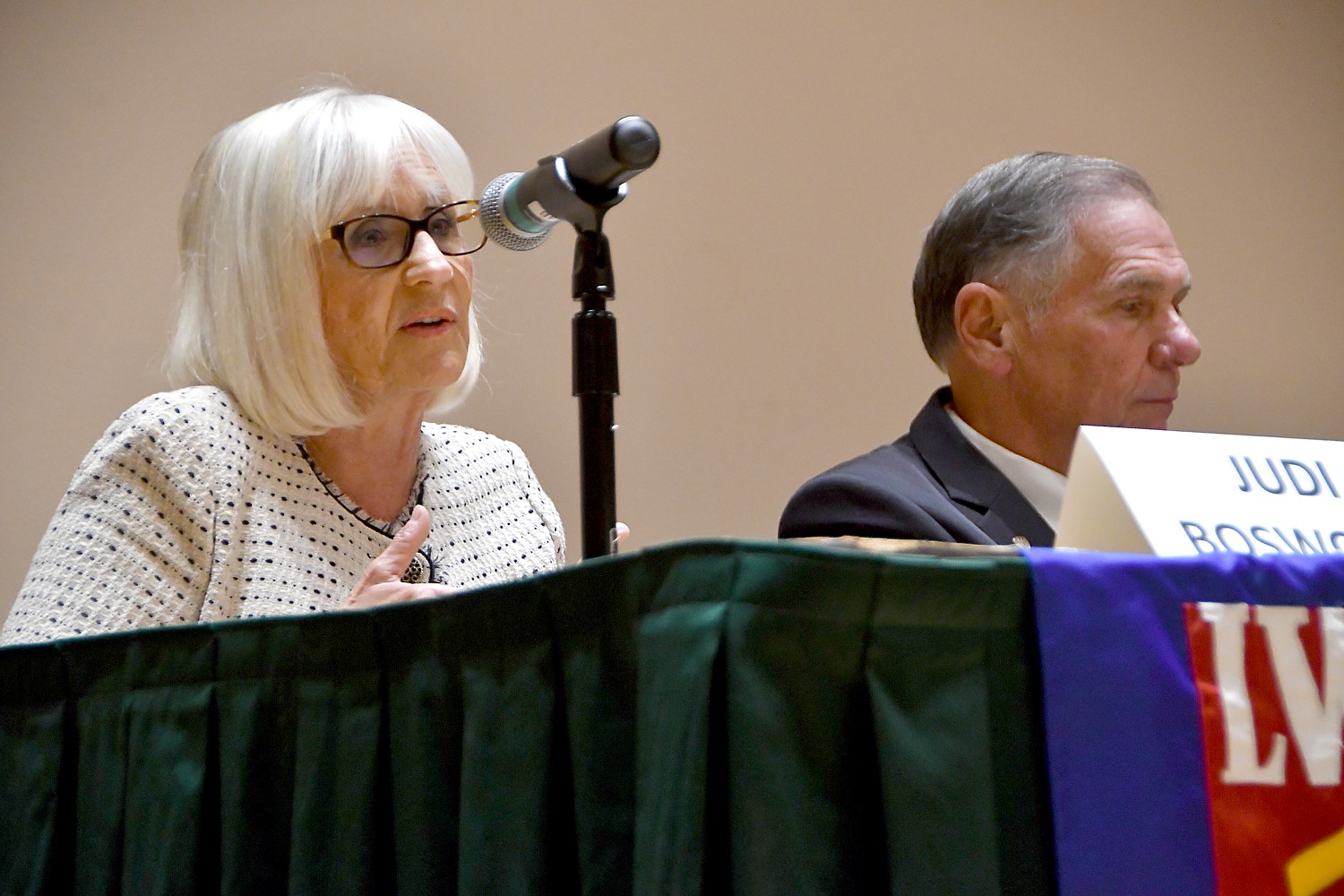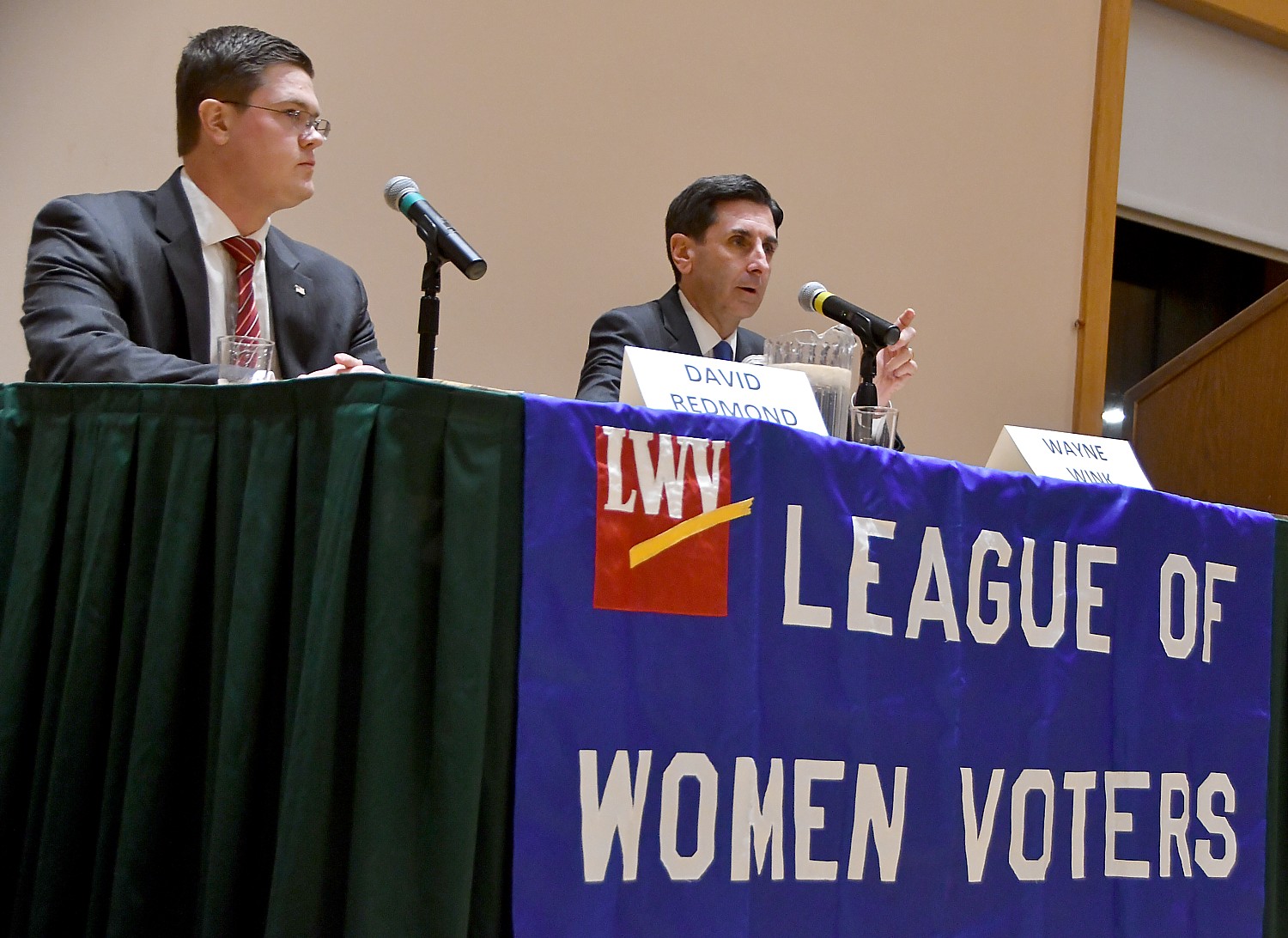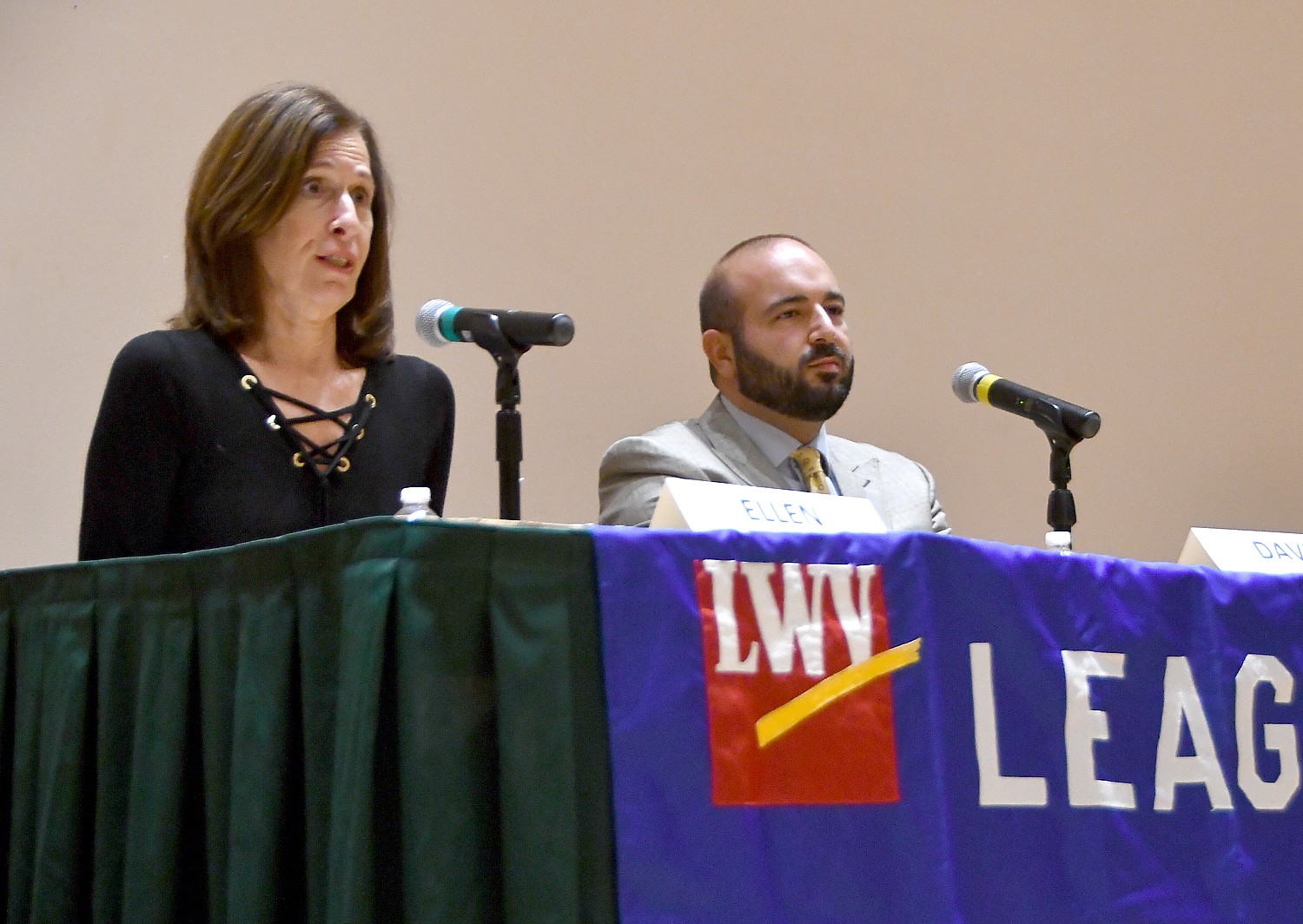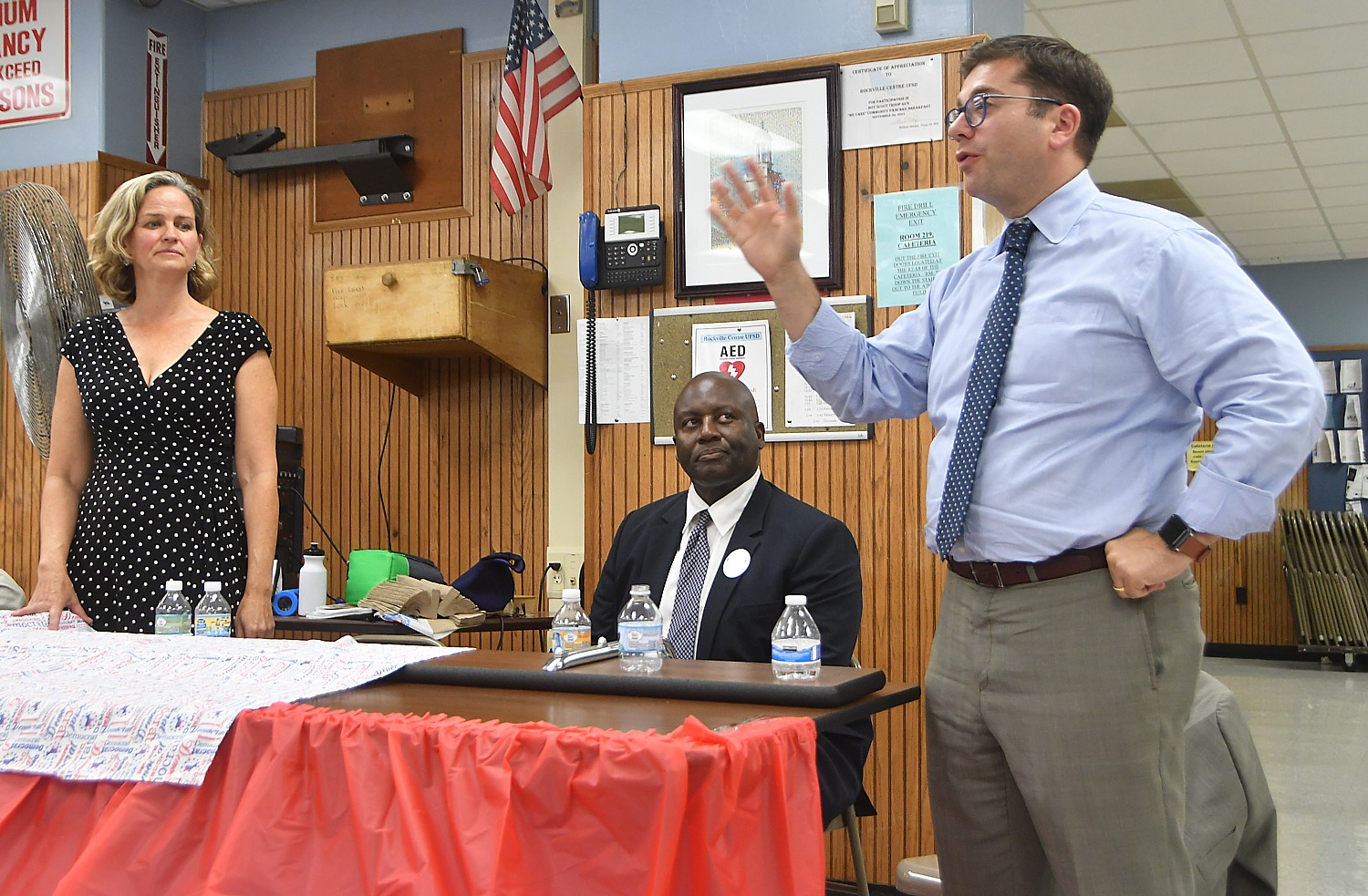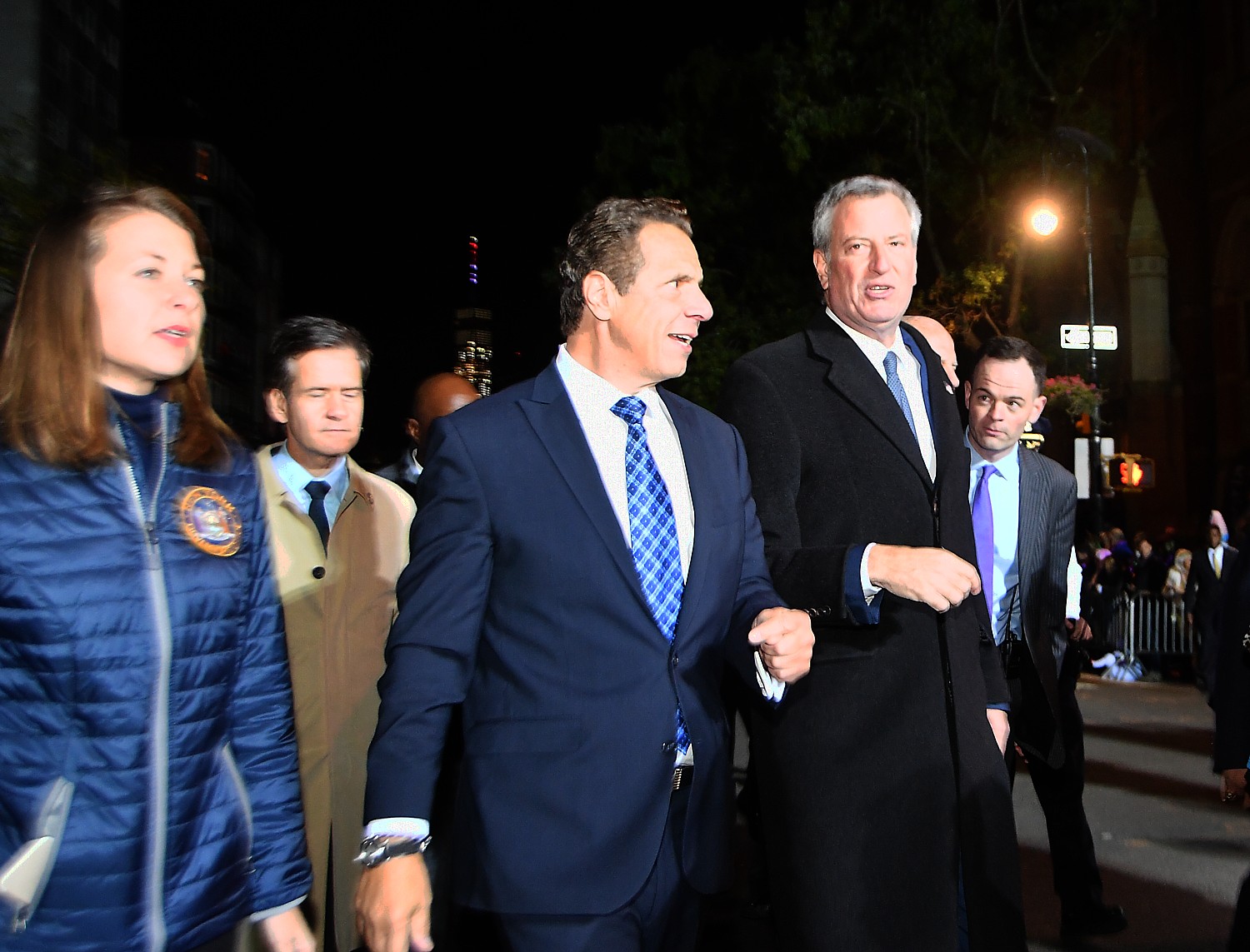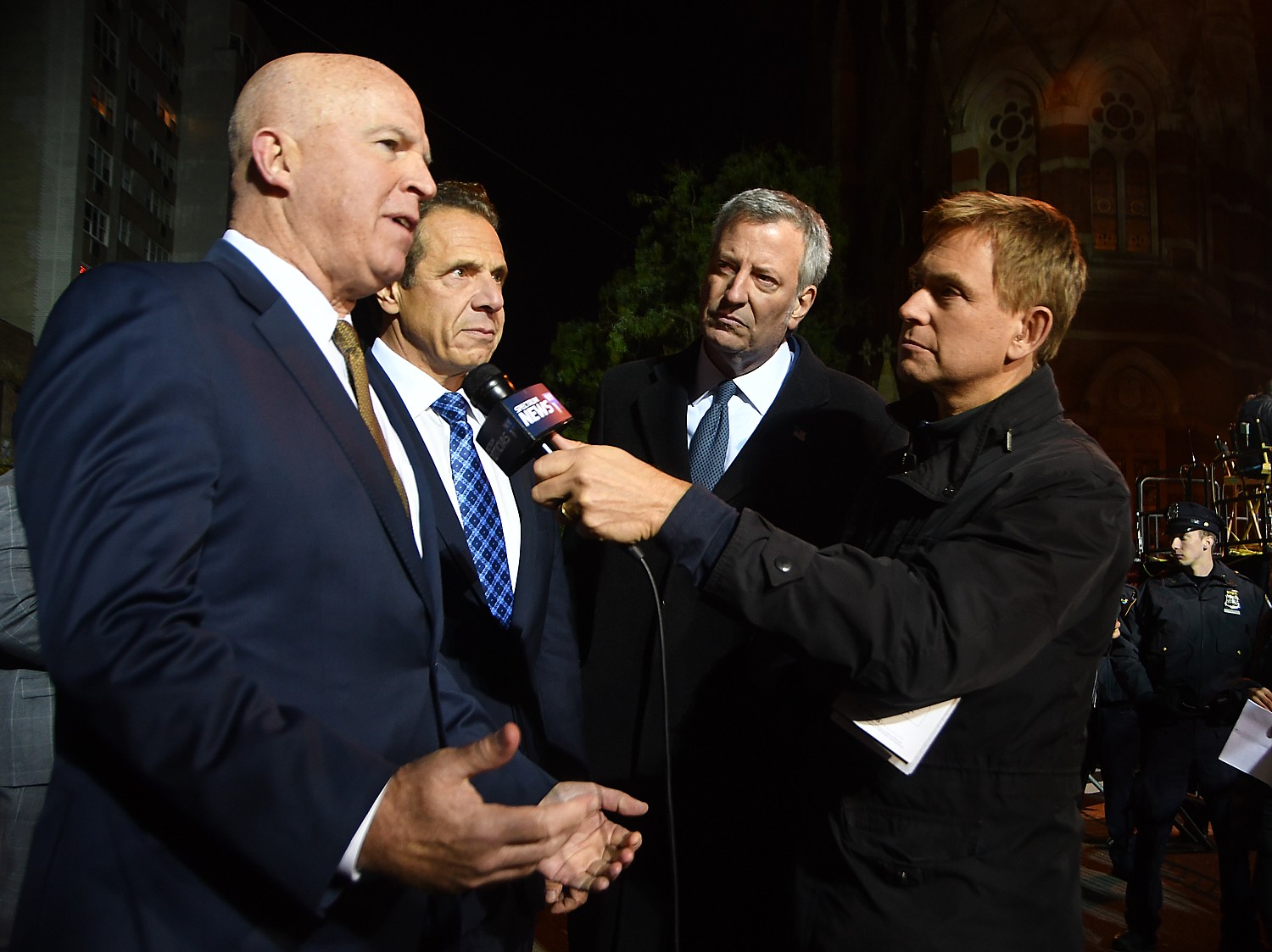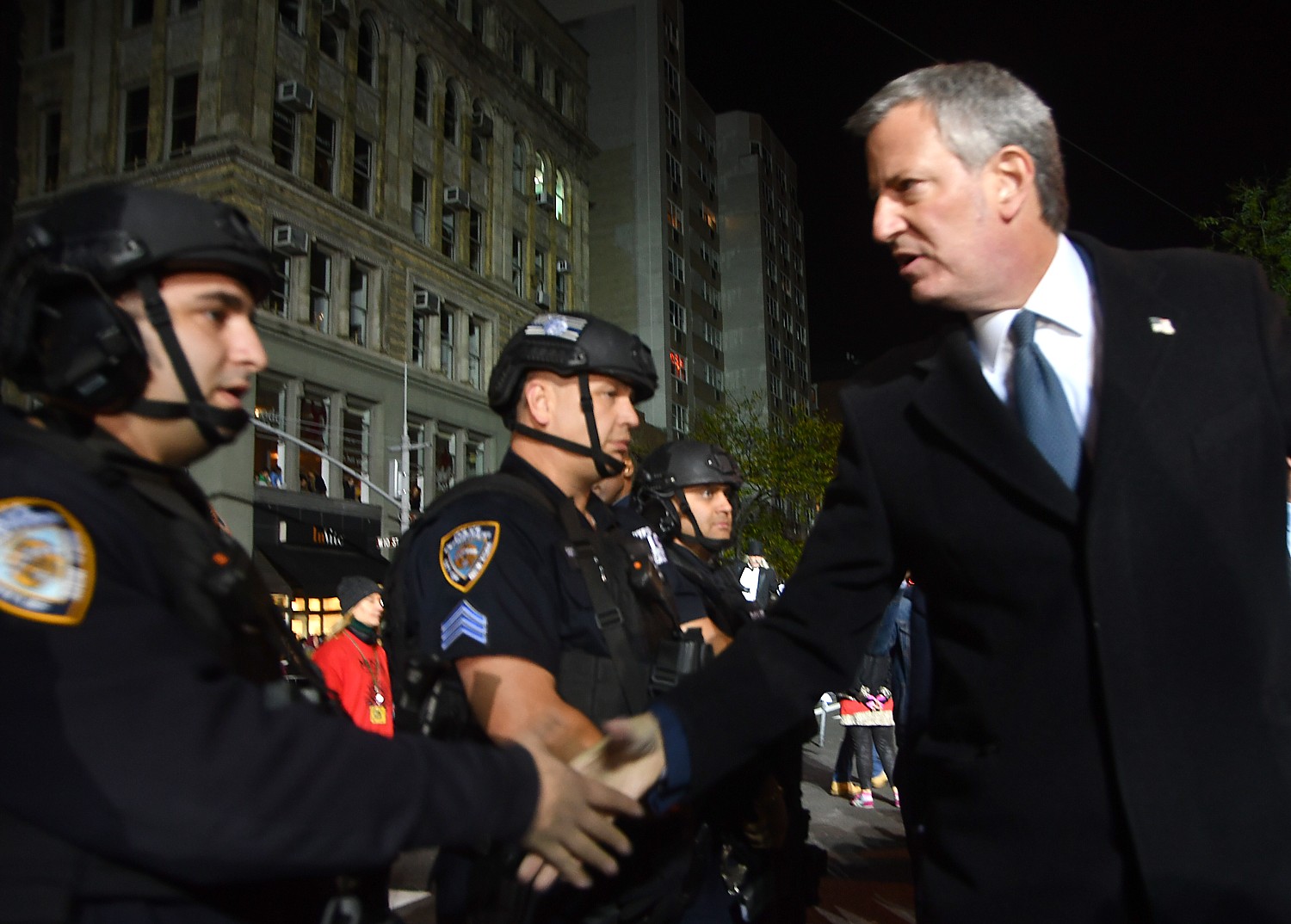by Karen Rubin, News & Photo Features
I was watching “The President’s Show” Christmas special (Anthony Atamanuik does a brilliant impersonation of Donald Trump) and happened to switch back to MSNBC’s coverage of Trump’s speech in Missouri in which he extolls how great the Republican tax plan is and quite frankly, could not tell the difference between which was the satire and which the actual speech. See for yourself: President Trump Tax Reform Speech In St Louis 11/29/17 – YouTube
▶ 46:09
https://www.youtube.com/watch?v=h1oqUJSYDvM
Every fact checker has given Donald Trump’s speech at the St. Charles Convention Center in St. Charles, Missouri on the Republican tax cuts scheme four-Pinnochios, most especially for his absurd declarations that the proposed cuts would hurt him and his rich buddies. Here’s just a small sample:
President Trump says the tax bill will ‘cost me a fortune.’ That’s false.
Trump’s Claims Don’t Add Up
Here is the White House transcript highlighted and annotated:
Remarks by President Trump on Tax Reform
St. Charles Convention Center, St. Charles, Missouri
2:22 P.M. CST
THE PRESIDENT: I told you that we would be saying, merry Christmas again, right? (Applause.) And it’s great to be back in Missouri — a sign of a lot of good things because you’re doing really well.
And I want to thank Governor Greitens and Attorney General Hawley, who — by the way, Josh — where’s Josh? Josh, our next senator. Where is he? (Applause.) He’s going to be a great senator. And he wants to see a major tax cut. I think I can speak for him, right? (Applause.) And your current senator does not want to see a tax cut. That’s not good. That’s not good. She wants your taxes to go up.
AUDIENCE: Booo —
THE PRESIDENT: Secretary Mnuchin, who’s doing such a fantastic job — (applause) — thank you — and Linda McMahon. Everybody knows Administrator — small business, became a big business under Linda. She’s helping a lot of people. Thank you very much, Linda. (Applause.)….
[Mnuchin claimed that he had a team of 100 specialists at US Treasury doing an analysis to show that the tax cuts would not add to national debt, now at $20 trillion. That was a lie – Treasury did not offer any analysis, but other nonpartisan and bipartisan agencies released reports that show that the Republican tax plan will add $1 trillion to the national debt and have only marginal benefit to increasing jobs, wages, or economic growth. What is more, the projections are “optimistic” and do not take into account the likelihood of a recession in the next decade.]
With your help, we can usher in a thrilling new era of opportunity and growth for this nation that we love so much. Tax cuts have already passed the House of Representatives. (Applause.) Big ones. Big ones. The eyes of the world now turn to the United States Senate.
A successful vote in the Senate this week will bring us one giant step closer to delivering an incredible victory for the American people. Massive tax cuts and reform. I don’t even mention the word reform because people don’t know exactly what we’re talking about.
You know, for years, they have not been able to get tax cuts — many, many years, since Reagan. And the problem was they talked about tax reform, not tax cuts. I said, don’t call it “reform,” call it “tax cuts and reform.” So every once in a while we’ll add the name “reform.” But it’s tax cuts.
[That’s true because it does not eliminate any of the loopholes that enable the wealthiest and biggest corporations to avoid paying taxes altogether; it only cuts taxes for the wealthiest, and makes up the lost revenue by taking away the credits and deductions that working class and middle class Americans use for home ownership, education, job training, and healthcare, for upward mobility.]
We cannot sit — (applause.) Right? The Governor agrees.
We cannot sit idly by and watch ourselves losing in competition to other countries as they continue to take away our jobs because their tax codes are more competitive and less burdensome than ours. That’s why we must cut our taxes, reduce economic burdens, and restore America’s competitive edge. We’re going to do that, too. And it’s already happening. Look what’s happening with our markets. People get it. (Applause.)
[It has been happening before Trump because of economic programs put into place by Obama, including trade deals, job training, summits designed to incentivize international businesses to locate here. As a result, corporations are flush with cash – $2 trillion worth – but have not raised wages. Trump’s tax plan has no incentives to raise wages and because consumer spending will be weak, and there are no rules to prevent companies from off-shoring jobs and profits, companies have no reason to invest here.]
If we do this, then America will win again like never, ever before. (Applause.) A vote to cut taxes is a vote to put America first again. We want to do that. We want to put America first again. (Applause.) It’s time to take care of our workers, to protect our communities, and to rebuild our great country. (Applause.)
You know, we’ve spent almost $7 trillion in the Middle East over the last 16 years — $7 trillion. Now, I’m taking care of it. We’re doing numbers like ISIS has never seen before. We’re wiping them out — terrorists, they’re bad. (Applause.)
And all of that, but we’ve spent almost $7 trillion. We could have rebuilt our country four times over. And we’re going to start spending here. We’re going to start spending here. (Applause.)
And with that being said, we’re going to protect our country, whether it’s North Korea or any — but we’re going to protect our country like never before. We’re going to build up our military and make our product here and make our planes, and our boats, and our everything here. But we’re going to build up our military. (Applause.)
But we’ve got to start focusing on our country. That’s why I’m saying America first. Make America great again — you’ve never heard that expression. (Applause.) All those hats. All those — they’ve never heard that expression before.
Oh, that was a good expression and it’s a true expression and it’s already happening and long ahead of schedule. And in fact, today, some numbers came out that people haven’t seen in many, many years.
This beautiful city of St. Charles is the perfect place to deliver the message that I want to deliver. It’s the place where America’s past and future come to life on its historic brick-lined Main Street. Nice street, do you agree? (Applause.)
It was along these very streets that, in 1804, the great American explorers, Lewis and Clark, gathered their final supplies before setting out on their very historic expedition of discovery. I have to say, I didn’t really know that until two days ago. (Laughter.)
See? See, now the world is watching. Look at all the fake news back there. They’re all —
AUDIENCE: Booo —
THE PRESIDENT: They’re all watching.
Today, more than two centuries later, a new generation of American pioneers begins its own adventure, gathering inside the startups and the storefronts of main streets across the country, blazing new trails into totally uncharted territory of business and technology, and once again leading our nation into a future of limitless potential.
That’s what we have in this country. We have the greatest people. It’s the greatest country. I love this country so much. (Applause.)
Our country was not treated properly for a long time. We’re treating it properly. We’re treating it with love and with this. You got to treat it with this.
And today, just as it’s always been, Main Street is the heart of our economy, the soul of our community, and the birthplace of American dreams.
But over the years, crippling taxes, massive regulation, and totally disastrous trade deals — oh, the trade deals. Oh, I get a headache thinking about who made these deals. (Laughter.) One after another. WTO, NAFTA, the wonderful deal with South Korea — remember, they said it’s going to produce 200,000 jobs? And it did, for South Korea. (Laughter.) Didn’t produce — we lost 200,000 jobs. It turned some of our businesses’ main streets into empty ghost towns. You see what’s happened.
Now we have a once-in-a-lifetime opportunity to restore American prosperity and reclaim America’s great destiny. We’ve already made tremendous progress — far greater than I would have thought. I will tell you this in a non-braggadocious way — (laughter) — there has never been a 10-month President that has accomplished what we have accomplished. That I can tell you. That I can tell you. (Applause.)
Today, again, the stock market has reached another record, all-time high. (Applause.) The unemployment rate nationwide is the lowest it’s been in 17 years — (applause) — and 13 states this year have seen unemployment drop to the lowest levels in the history of their state. And I hate to tell you, but Missouri happens to be one of them. (Applause.)
[Increases in stock market have nothing to do with jobs or wages or prosperity. In the first place, they are paper profits only realized when the stock is sold. In the second place, only 20% of Americans have a stake in the stock market. In the third place, sales of shares do not go to the company to invest or add jobs except when it is the Initial Public Offering. Fourth: the stock market only reflects short term, not long term, and today, with computer trading, will buy/sell based on small changes in market price. Fifth: Wall Street does not care about the well being of ordinary Americans – witness how the stock market rose on news that hundreds of thousands of jobs were being shed in the lead up to the 2008 financial collapse.]
We’ve created nearly 2 million jobs — 2 million jobs, think of that. We used to lose millions. Now we’ve created 2 million jobs since I won the election. And, I want to say, since you won the election. I didn’t win the election; you won the election. (Applause.)
And we will create countless more if we can sustain the 3 percent growth rate we have achieved for the past two quarters. But we’re going to do much better than that. Remember I used to say, we can hit 4 and we can hit 3? And they were all saying, forget it, forget it. It was 1.2. It was doing terribly. We were flat. We were even. In all fairness, the stock market was going this way.
[No credible economists expect the US, a mature economy, to grow by 3% a year.]
And now, we’re hitting numbers that nobody thought possible, certainly not in this time. And the numbers going up are going to be much better than anybody anticipates. In fact, they’re going to say that Trump is the opposite of an exaggerator — the exact opposite. (Laughter and applause.) They’re going to start saying, Governor, that he ought to be a little bit more optimistic because his predictions were low, can you believe it?
You know, a year and a half ago, they were saying, oh, he can’t do that. Now they’re saying, hm, that was quick. (Laughter.)
But by the way, the Commerce Department announced this morning that our GDP — that’s the big one — in the third quarter, grew even faster than they reported previously. They made a mistake, they were too low. They had it at 3 percent. By the way, 3 percent — did you ever think you’d hear that in less than a year?
AUDIENCE: No!
THE PRESIDENT: And now it comes in at 3.3 percent, which is the largest increase in many years. (Applause.)
And if we didn’t have the hurricanes, we would have been at 4 percent. The hurricanes were devastating. And I said, they’re worth a point. They said they were worth like .006, but I said they were worth a point. We would have been at 4 percent, maybe even over 4 percent, but we had hurricanes.
We took care of them. In Texas and Florida, they did a great, great job — amazing job, tremendous leadership. And we’re very proud.
[Where is the money coming from for disaster relief, which is all too common with climate change and increasing frequency of climate catastrophe?]
Puerto Rico has been a very tough situation because of the fact that it was in very, very bad shape before the storms ever hit. But they’re doing well there and it’s healing and it’s getting better. And we’re getting them power, and all of the things that they have to have.
But I want to tell you there are a lot of brave people in every state. We have great, great people, and it’s our number one resource, believe me. Really great. (Applause.)
But in order to achieve this bright and glowing future, the Senate must pass those tax cuts. Bring Main Street roaring back — and that’s what’s going to happen. This was all done without the tax cuts, and I’m not sure that people even believe the tax cuts. I want to see what happens….
So right now, America’s tax code is a total dysfunctional mess. The current system has cost our nation millions of American jobs, trillions and trillions of dollars, and billions of hours wasted on paperwork and compliance. It is riddled with loopholes that let some special interests — including myself, in all fairness. This is going to cost me a fortune, this thing — believe me.
Believe me, this is not good for me. (Laughter.) Me, it’s not so — I have some very wealthy friends — not so happy with me, but that’s okay. You know, I keep hearing Schumer, “This is for the wealthy.” Well, if it is, my friends don’t know about it. (Laughter.) I have to explain why.
[Like in poker, Trump has a “tell” when he is bluffing (lying): Whenever he says “Believe me,” especially when he repeats “Believe me” he is lying.]
Now it is great for companies, because companies are going to bring back jobs. And we’re lowering the rates very substantially. But right now, we’re bringing the rates down from 35 percent — which is totally non-competitive. The highest industrialized nation in the world, by far, and we’re bringing it all the way down to 20 percent. (Applause.)
[35% is the nominal tax rate before deductions and loopholes. The average rate paid by US companies is 18%, which is below average for industrialized nations, and profitable companies like Apple and General Electric pay little or no taxes.]
But that’s good for everybody in the room, whether you have company or whether you want a job, because we’re going to bring back jobs. (Applause.)
And what we’ve had is a massive giveaway to foreign countries, which encourage businesses to relocate offshore. And you’ve seen what’s happened.
Before this — this is, really, I’m most proud, because, as bad as our tax code is, we have Toyota, we have big car companies coming back in, building plants in Michigan and other places. We have a lot of businesses coming back in, and they see what’s happening. They see what’s going on.
[International companies have building factories in the US, predating and having nothing to do with Trump. Even the announcements he made after winning election were plans to expand made during Obama’s administration.]
That’s why they’re doing — our current code is a giant — and really it is — it’s a self-inflicted economic wound. It’s been that way for so many years and nobody wanted to do anything about it.
But all that will change and it will change immediately if Congress sends a tax cut and reform bill. The biggest tax cut in the history of our country — bigger than Reagan. If they send it to my desk, I promise all of the people in this room — my friends, so many friends in this room. It’s a great state. I promise you I will sign it. I promise. I will not veto that bill. There will be no veto. (Applause.)
Under the plan moving forward in the Senate, a typical family of four earning $75,000, as an example, will see their taxes go down by as much as $2,000. That’s a lot. (Applause.)
[Individual tax cuts are temporary; what is more, losing the deductions for state and local taxes, interest on school loans and the like, will wipe out any reduction in taxes because of the doubling in the personal exemption. And with the deal to eliminate the Obamacare individual mandate for health insurance – to appear to save $338 billion in government spending so that the tax plan can pass with only 51 Senate votes – everyone’s premiums will increase 10% a year.]
Now, we’re doing that not just to help people. We’re doing that because it helps our country. You’re going to take that $2,000 and maybe you’ll save some, and you’re going to spend some. And we’re going to make product back in our country again. It’s going to be made here — going to be made elsewhere. But it’s going to be made here. We’re opening up plants. We’re opening up factories, and we’re going to be great to small business. Wait until you see the final product. Wait until you see what finally comes out in what I call the mixer.
The beating heart of our plan is a tax cut for working families. That’s what it is. We’re going to make sure — (applause) — that you keep more of your hard-earned money. We’re going to make sure, also, that you have a job that you want. You’re going to have choice. In education we now have choice. Good word. Here you’re going to have a choice. You’re not just going to have one — you’re going to have a choice of many jobs. People are moving back into our country.
Under our plan, the first $12,000 of income earned by a single individual will be totally income-tax-free — zero. (Applause.) And a married couple won’t pay one dime of income tax on their first $24,000 of income — zero. (Applause.)
Our plan will significantly increase the child tax credit and make it available to more middle-class families because the single most important investment our nation can make is in our children. Do we agree? You agree? You better agree. (Applause.)
Families will also benefit from a new credit for other dependents like a child in college, or an elderly loved one. We have our mothers, our fathers. You have your grandparents. You have people that are elderly that have done a fantastic job. They’ve grown old. You want to help them. Now we are going to help you help them. (Applause.)
We’re also going to eliminate tax breaks and complex loopholes taken advantage of by the wealthy. Who are they? I don’t know. (Laughter.) I think my accountants are going crazy right now. It’s all right. Hey, look, I’m President. (Laughter.) I don’t care. I don’t care anymore. I don’t care. (Laughter and applause.)
Some of my wealthy friends care. Me? I don’t care. This is a higher calling. Do we agree? (Applause.) As Hillary said, what difference does it make? It made a difference. It made a big difference. It made a big, big difference. (Applause.)
[If the tax plan isn’t going to give Trump and his family millions of dollars – by eliminating the AMT and Estate Tax – where are his tax returns to prove that?]
We want a tax code that is simple and fair, and that’s for all Americans. The plan that senators will be voting on this week — hopefully as soon as possible — closes the loopholes that corporations use to shift their profits to tax havens, and it eliminates deductions for CEO salaries over $1 million. You see what some of these people are making — a little ridiculous. (Applause.)
[NOT TRUE.]
I’m driving up their stock. They’re making a fortune. Then they go to their board, and they tell everybody what a great job they’re doing. But what am I going to do? (Laughter.) And many of them, honestly, I don’t like. (Laughter.) Oh, some of these bankers I don’t like them, and they’re making a fortune, and it’s one of those things.
Steve knows a couple of them that I’m talking about, doesn’t he? (Laughter.) They say what a great job they do. Right now anybody could do their job because we’re making it easy for them because we’re giving them a great and strong economy. And because we’ve cut regulations more than any President in the history of this country by far, and that’s for full terms. That’s not for 10 months. (Applause.)
And it allows builders to build, and it allows farmers to farm. You know what I’ve done for farmers. (Applause.) Where if you had a little puddle in the middle of your field, you go to jail if you touch it, right? You know what I’m talking about. Not anymore. Not anymore. Not anymore. (Applause.)
And it allows bankers to lend. It allows bankers to lend again. So many people came up to me, and they said, we had a 20-year relationship with a bank. We never had a default. We never had a bad loan. Now we go back to the bank, and they say, we can’t do business with you anymore.
Because they don’t qualify, even though they’re better than the people that do qualify. It’s incredible. But we’re back to the strong days of our banks. And not the days of trouble — pre-that — we’re back to the — where bankers can make loans and community bankers can make great loans to good people.
You saw what happened recently where the certain agency or bureau that was causing so much trouble to lenders, where they could not lend. They just couldn’t lend. It was devastating. They were going out of business. Well, we’re taking care of that. We’ve already taken care of a big part of it, and yesterday you saw we won the lawsuit. So that’s going to be taken care of automatically. (Applause.) Got to get back to business.
Our focus is on helping the folks who work in the mailrooms and machine shops of America — the plumbers, the carpenters, the cops, the teachers, the truck drivers, the pipe fitters — the people that like me best. (Laughter.) Actually, the rich people actually don’t like me, which is sort of interesting.
And that’s fine. You know what? I like that trade. (Laughter.) But really, the people that like me best are those people — the workers. They’re the people I understand the best. Those are the people I grew up with. Those are the people I worked on construction sites with. (Applause.)
All of the people who give their best each and every day to take care of their family and the country that they love — these are incredible people. They came out to vote for me. They came out to vote for us. People that worked hard, two jobs, three jobs, that hadn’t voted in many years because they never had anybody they wanted to vote for.
And they came out — I’ll never forget, in Tennessee, a great congressman told me — they had early voting — said, I’ll tell you what, we just went through four days of early voting. At that time, it was Mr. Trump. Now they say, Mr. President. But it was Mr. Trump.
He said, and if the other parts of the country are like what’s happening in Tennessee — people are coming from all over Tennessee. They haven’t voted in years, and now they’ve got Trump shirts and they’ve got Trump hats, and they’ve got Trump-Pence, and they’ve got everything Trump and Trump-Pence.
[Trump can’t get through a single speech without crowing over the 2016 Election.]
And he said, I’ve never seen anything like it, and I’ve been a politician for a lot of years. And if it’s anything like Tennessee, you’re going to have one hell of a victory. It turned out to be a lot like Tennessee, so — (applause). And it turned out to be a lot like Missouri. That I can tell you. (Applause.) Because we had a big one here.
And I promised Josh that, when he gets it going — and he’s got it in very good shape, from what I hear, he’s a popular — everybody said, Josh, got to be Josh. Everyone who saw me — I said, who’s going to run against her? Josh, Josh. I said, Josh, when you’re ready, you have my word, I’m going to come here and campaign with you. We got to get you in. Okay? (Applause.) Got to get you in.
It’s not enough for the middle class to keep getting by; we want them to start getting way ahead. (Applause.) We’re going to have them start getting way ahead.
Under our plan, middle-class families will not only see their tax bill go down, they will see their incomes go up by an average of around $4,000. (Applause.) And that’s because we’re going to cut taxes on American businesses so they will compete for workers, they’ll raise salaries. The business is going to be happy and the workers are going to be happy and the country is going to be a happy place.
Although, we’re going to have very strong borders. Please remember that, okay? Please remember. (Applause.)
AUDIENCE MEMBER: Build the wall.
THE PRESIDENT: We’re going to have the wall. Don’t worry about it, we’re going to have the wall. (Applause.) We don’t forget that wall. A lot of people say, now that he got elected, is he going to build the wall? The answer is, absolutely — more so, I think more so. (Applause.)
It’s not easy dealing with the Democrats. They want to have people pour into our country — illegals. They don’t care where the hell they come from. They want to have them pour into our country, they want to raise your taxes, they don’t want to take care of your military, and all they’re good at, frankly, is obstructing. They want to obstruct.
But you know what? They may obstruct, but we have gotten through all of the obstruction so far. We’ll keep it going, believe me. (Applause.)
Today, America has one of the least competitive tax rates on planet Earth — 60 percent. Think of that: 60 percent higher than the average in the developed world. So our taxes are 60 percent higher.
On my recent trip to Asia, every single one of the countries I visited, even those with communist governments, have slashed its corporate tax rates and slashed them dramatically. And it’s very tough competition anyway. But when their taxes are a lot lower, it really makes it very tough.
And that trip was a tremendous success. You know, we brought back $250 billion in contracts. That’s going to be over a trillion dollars very soon. (Applause.) That’s a good week and a half’s work. Boeing came back with contracts. So many of our companies came back, and I’m very proud of them. And we’re doing great.
But at the same time, we’re going to fix trade because trade is unfair. We’re getting killed on trade. So we’re going to fix our trade. Unless anybody would like to continue with this horrible situation that we have.
AUDIENCE: Booo —
THE PRESIDENT: Our plan gets America from the back of the pack and it’ll bring us right to number one, where we were for years but where we haven’t been for decades. We’re going to be right back at number one. (Applause.)
And we’re going to work on trade, but we’re also going to work on military. When we defend nations that are very wealthy, and we do it for almost nothing, I say, why are we defending them? We love them. I won’t mention names, but there are a lot of them. We love them. They’re wealthy.
One of them has a cash flow that they say is unsustainable, it’s so large. Think of that. How would you like to have an unsustainable cash flow? They don’t know what to do with their money. And we defend them. It’s going to change, folks. We’re going to defend them, but they’re going to treat us fairly. And they’re going to pay for their defense. Does that make sense? (Applause.)
And a lot of this is from many, many years ago, when we defended a defeated country and then they became strong and they became rich and we just kept the same defense. What happened? Why didn’t anybody go in and negotiate?
And when I was in Asia, I spoke to a couple of the countries about it, and they looked like this. Do you know what this is? (Laughter.) That means they know they’re getting away with murder and they got to start helping us out, okay? So if you don’t mind, I’ll start bringing that up with some of our good friends. (Applause.)
We’re going to lower our tax rate to the very competitive number of 20 percent, as I said. And we’re going to create jobs and factories will be pouring into this country, and they already are starting. A lot of people think it’s going to happen. I don’t want to say anything. I’m not going to talk about it. I thought we had healthcare, and we will have healthcare. It’s going to happen. As soon as we get the taxes, we work on the healthcare, we’re going to happen. Because we thought we had the votes and something happened a little strange — (laughter) — that’s okay.
When you lose by one vote, then it’s called — you go back. You know, some people said, oh, you failed with healthcare. I said, what do you mean we failed? We didn’t fail. And by the way, what happened — what happened is Obama took a long time — years — to get Obamacare, right? Again, ten months? We’ve had two runs at it. We’re coming closer, closer. I think now we have a plan that’s going to be great. But we’re not talking about it until after taxes. And then we take care of healthcare.
Then we will have done tax cuts, the biggest in history; healthcare, phenomenal healthcare. I know you don’t want this — welfare reform. Does anybody want welfare reform? (Applause.) And infrastructure. But welfare reform — I see it and I’ve talked to people. I know people, they work three jobs and they live next to somebody who doesn’t work at all. And the person who’s not working at all and has no intention of working at all is making more money and doing better than the person that’s working his and her ass off. And it’s not going to happen. Not going to happen. (Applause.)
So we’re going to go into welfare reform, unless Billy doesn’t want it. Billy, am I okay in saying that I speak for you? He said, yes.
AUDIENCE MEMBER: We love you, Billy. (Laughter.)
THE PRESIDENT: You got a lot of friends out there, Bill.
Well, we’ll also cut taxes for the millions of small businesses that file as individuals, and that’s going to come out of the hopper. (Applause.) It’s getting there and it’s going to be better and better. We’re reducing the tax burden on businesses of all sizes and of every, single kind.
As a candidate, I pledged to fight for American jobs. I think it’s possibly the number one reason I got elected. And I think we’ve done a lot better, at this point, than anybody ever even thought possible. Think of that, two million jobs since the election — two million more jobs in this country since the election. Nobody expected that. Nobody expected that. Excuse me, I didn’t even expect that. (Laughter.)
But you cut those regulations and you give people spirit and incentive. And when you have the highest ratings, in terms of confidence, that the country has had in many, many years — maybe ever — things happen.
The tax cut will mean more companies moving to America, staying in America, and hiring American workers right here. So that’s so important, right? (Applause.)
Small business groups across our nation, retailers, restaurants, manufacturers, grocers, contractors support this plan. We have tremendous support for this plan. Tremendous. Because these massive tax cuts will be rocket fuel — (laughter) — Little Rocket Man — (laughter) — rocket fuel for the American economy. (Applause.) He is a sick puppy….
[Out of no where, a gratuitous dig at North Korea.]
We want to make it easier for loving families to pass on their life’s work to their children. Be nice. Be very nice, right? (Applause.)
That’s a tough one. The Democrats fight that one I think harder than any other thing that we’re doing. They fight the death tax. They don’t want it. They don’t like it. They don’t want it. It’s one of those things. But that is one of the hardest things. I have to be — I see people right here. They’re obviously very rich, and they love their children, right, in this group? (Laughter.) They love their children. They’re very rich. They want to pass on what they have without having to have the kids sell the property, mortgage up half of it. But the biggest problem we have on that one, these Democrats are being brutal. And I call them obstructionists, but they want to stop the estate tax. They want to stop the death tax from being rescinded. But we’re going to try our best on that one.
[Of course Trump and his donors, the Kochs, Mercers, Adelson, want to rescind the estate tax which impacts a few thousand individuals because the cap is so high: Trump’s kids stand to pocket an extra $1 billion when Donald kicks the bucket.]
Our economy will receive another enormous boost as trillions of dollars in wealth that’s parked overseas will be able to come back to our country.
Now, this one that’s interesting because for years Republicans and Democrats agreed. You have Apple, and you have these great companies having billions and billions of dollars overseas. Now who doesn’t want the money to come back?
But to show you the lack of leadership that this country had in the past, the Republicans want it, and the Democrats want it. And nothing ever happened. You could have passed that one easy. In fact, we’re just throwing it into this bill. I could have had a separate bill on that one — I think. Don’t you agree, fellas? I could have had a separate bill on that one and gotten it passed in record time. But I figured I’d put it here because it is actually popular.
But it used to be $2.5 trillion. You know what that is? Trillion. Money you can’t bring back in. It’s prohibitive — both in complexity and in the amount of tax you have to pay. So nobody brings back in — $2.5 trillion. But $2.5 [trillion] I’ve been saying for six years. I think now it’s $4 trillion to $5 trillion. All that money is coming back into the United States, and it’s going to be invested in our country, instead of sitting and helping others. We want our own help. (Applause.)
That’s sort of an easy one. Last year, American multinational companies left more than 70 percent of their foreign profits overseas because the current tax system penalizes them for bringing that money back home. They actually get penalized. Our plan switches to a territorial tax system that encourages companies to return their profits to America — right here to the United States — where that money belongs going back to work for you. Territorial. (Applause.)
[Democrats support the concept in theory, but not the way it will be abused. The Republican plan doesn’t prevent companies from continuing to offshore profits to avoid tax. Democrats including Obama were always in favor of lowering the corporate tax rate to the range of 20%, but removing the loopholes so they actually do pay tax.]
If we want America to thrive in the 21st century, then we must stop running from the competition. And instead, we must start totally winning and winning and winning again. Remember when I used to say: We’re going to win so much. We’re going to win — that the people of Missouri are going to go to your governor, and they’re going to say, Governor, please, go see the President. We can’t stand winning so much. Remember I used to say that? (Laughter.) Right? I used to say it, and that’s what’s happening. That’s what’s happening. (Applause.)
And then the governor is going to come to that beautiful historic Oval Office. He’s going to say to me, Mr. President, the people of Missouri cannot stand all this winning. (Laughter.) They don’t want to win so much. They love the old way where they had lousy job numbers, lousy economic numbers, lousy — yeah, they loved it. Please, Mr. President, please, not — and I’ll say, Governor, I don’t care what they say in Missouri, we’re going to keep winning and winning and winning. Remember? (Laughter.) That’s right. (Applause.)
I used to say that. I had fun with that. But we are winning. We’re winning again. We’re winning a lot bigger than anyone ever thought possible for such a short period of time.
For too long, our tax code has incentivized companies to leave our country in search of lower tax rates. It happens. Many, many companies — they’re going to Ireland. They’re going all over. They’re going all over Asia. But they’re stopping because they now want to take advantage of what’s happening and what we’re about to pass, hopefully.
My administration rejects the offshoring model. In other words, let’s build a factory in another country. Isn’t that wonderful? That really helps us a lot. Fire everybody, and let’s build a product, and let’s send it in, without tax, back into the United States.
That model doesn’t work for me. It never worked, and it shouldn’t have worked for any of our other past Presidents, believe me. (Applause.)
Our new model is the American model. Call it the Trump model, where we build it here. As much as possible, we build it here. Simply put, our tax plan is anti-offshoring and 100 percent worker, 100 percent worker, 100 percent pro-America. (Applause.)
Under the American model, we’re reducing burdens on our businesses as long as they do business in our country. Okay? They do business here.
Now, we love Mexico. It’s a wonderful place. But I don’t like when our car companies move to Mexico, fire everybody, build the same car in Mexico, send it through our borders with no taxes, no nothing, and we buy the car. Same price. We buy the car.
In the meantime, what do we get out of it? We get no tax and we get unemployment all over. That’s stopping. So now the plants are starting to move back. And now there’s a price to pay when they do that little number on us. (Applause.) That’s how we will all succeed and we grow together as one team, one people, as one American family. (Applause.)
This week’s vote can be the beginning of the next great chapter for the American worker.
To summarize: Our plan cuts taxes for the working and middle-income families; it nearly doubles the amount of income taxed at the rate of zero; it lowers tax rate; it expands the child tax credit; it provides relief from the estate tax, also known as the death tax; it cuts small business taxes; it reduces the corporate rate from 35 percent all the way down to 20 percent; and it provides a one-time low tax rate to return corporate money parked overseas — trillions and trillions of dollars.
This is the right plan. This is the right time. We have a moment in time. The Republicans have the Senate. The Republicans have the House. The Republicans have the White House. It’s very unusual. It’s very unusual. (Applause.)
This is our chance to free our economy from our workers — from the terrible tax burdens. We have workers that are so burdened with taxes. We’re freeing our workers from those terrible burdens.
Republicans in Congress campaigned on cutting taxes. We also campaigned on repeal and replace. It’s going to happen. It’s going to happen. Take your time, it’s going to happen — going to happen. (Applause.)
Many Democrats have promised tax cuts that don’t mean anything because they really want major tax increases. Senator Claire McCaskill — have you ever heard of her?
AUDIENCE: Booo —
THE PRESIDENT: — is doing you a tremendous disservice. She wants your taxes to go up. She’s weak on crime, she’s weak on borders, she’s weak on illegal immigrations, and she’s weak on the military. Other than that, I think she’s doing a fantastic job. (Laughter.)
[Trump uses this kneejerk attack on any Democrat or anyone he doesn’t like without regard for truth.]
But now comes the moment of truth. In the coming days, the American people will learn which politicians are part of the swamp and which politicians want to drain the swamp. (Applause.)
If you make your voices heard and call up your congressmen — and they’ve been terrific — and call up your senators — and they have been totally terrific. Most of them have been incredible. They really are. They’re friends of mine. They’ve been incredible.
But, it doesn’t take much. That’s why we need more. We need to have a larger number. But most of them have been incredible. But call your senators. Call you congressmen, because we have no choice. We have to act. We have to act as a country. This isn’t good for the Republican Party; this is good for the country and that’s ultimately what’s it all about. (Applause.)
So, this week, hopefully, the Senate can join the House and take that strong stand for middle-class families and for business, and for jobs, and for competition, and for bringing money back. Together, we will give the American people a big, beautiful Christmas present. (Applause.)
And remember, I was the one — when I was here last time, I said, we’re going to have Christmas again. I was the one that said, you go to the department stores and you see “Happy New Years,” and you see red, and you see snow, and you see all these things. You don’t see “Merry Christmas” anymore.
With Trump as your President, we are going to be celebrating Merry Christmas again, and it’s going to be done with a big, beautiful tax cut. (Applause.)
Thank you everybody. God bless you. Thank you. Thank you everybody. Thank you very much.
________
© 2017 News & Photo Features Syndicate, a division of Workstyles, Inc. All rights reserved. For editorial feature and photo information, go to www.news-photos-features.com, email [email protected]. Blogging at www.dailykos.com/blogs/NewsPhotosFeatures. ‘Like’ us on facebook.com/NewsPhotoFeatures, Tweet @KarenBRubin




